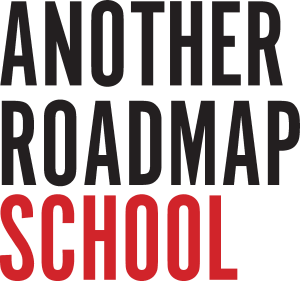Video presented at Toronto meeting by Mayra Rivera Rivera: “What happens when academic research exposes some of the researcher’s deep personal experiences of pain? Here is an account of two graduate students who decided to engage this intimate dimension as an essential part of their Masters research project in Cultural Agency and Administration – one through his work as a dancer/poet, and the other through a personal practice where attention to bodily memories (or memories which find a place in the body) and writing to the forces at play in these memories create new spaces for thought, while opening possibilities for healing as a product of the research itself.”
Ecologías del arte, la educación artística y creativa, y la acción comunitaria
Maestría en Gestión y Administración Cultural (MAGAC)
Masters in Cultural Agency and Administration
University of Puerto Rico, Río Piedras Campus
In the case of Puerto Rico, a semi-autonomous state presently under U.S. rule by means of a “Commonwealth” government, public and popular discourses about arts are intricately linked to broader discourses about culture, politics, governance, and the right to self-determination. Typical in this political context is the situation of public discourses about arts within the notions of culture as either the “preservation and diffusion” of a (musical, artistic, artisanal) heritage or, on the other hand, of culture as a spearhead of progress and modernity, defined in “Western” terms.
Equally characteristic of this context is the emergence over decades of numerous arts and cultural initiatives – highly diverse in vision, methods and aims – which in one way or another address, and often actively seek to compensate for, the inequalities produced by these conditions. Also symptomatic of this colonial context is the scarce, when existing, documentation and analysis of these efforts.
Public policing on culture, arts, and arts education in Puerto Rico is inserted in the midst of this political crossroads. Unable to participate in international diplomacy, Puerto Rico is excluded from processes such as the ones that produced the UNESCO Road Map for Arts Education (Lisbon 2006, Seoul 2010). At the same time, local legislation in these areas is to a great extent dependent on U.S. federal legislation, where Puerto Rico only has a limited lobbying, but not decisive, power. While both, the UNESCO Road Map, and recent U.S. policy on arts education, insist on the social value of arts and creativity for the “knowledge-based, global economy”, none of them address the complexities and inequalities these economies and its social models increasingly present, which are immediately evident in the (neo)colonial situation of Puerto Rico. When setting the ground for policies on arts education in commitment to this “global economy”, these documents resort to a reductive/simplifying and universalizing language oblivious to the great diversity of needs and understandings of what “arts”, “culture”, “education” and related practices are in different locations around the globe. In general, the lack of a critical vision and revision of the basic premises of these documents, and their limited understanding of the social, cultural, personal and political complexities inherent in artistic, cultural and educational practices and experiences in contemporary societies, pose serious challenges to their claims and aims.
MAGAC (http://gestioncultural.uprrp.edu/), as an established graduate program at the University of Puerto Rico in Río Piedras, has begun to develop a research project which can begin to articulate responses to the needs and inquiries presented around these themes by our immediate and regional contexts. This project will benefit from MAGAC’s interdisciplinarity and the expertise of its collaborators in diverse areas (researchers and practitioners in cultural studies, arts, music and performance, law and cultural policy-making, history, anthropology, economy, digital technologies and community activism); as well as from its existing documentation work on cultural and artistic initiatives in the project Mapa Cultural del Puerto Rico Contemporáneo (http://mapacultural.wordpress.com/), which has developed uninterruptedly since 2009. According to what we have identified as some of the most pressing issues, our research will focus on four main areas:
- the relationships between arts, politics and society (including issues of coloniality, sovereignty, and the use and development of public spaces);
- collection, analysis and circulation of local histories, knowledges and practices around arts and arts education in the last decades, and into the present;
- knowledge production in the arts in tandem between notions of “heritage” and “creativity”,”tradition” and “innovation” (for this area, we count with the Caribbean Network of Art Presenters, CaribNet, as a partner); and
- economic, legal and administrative patterns and dynamics in creative and cultural production in Puerto Rico, and their insertion in broader regional or global dynamics.
In acknowledgement of the urgency of documenting cultural, artistic and arts-educational work in Puerto Rico and of opening public spaces for the discussion and analysis of the same, our project is committed to the creation of a Digital Archive, the coordination of a regular meeting series between researchers and practitioners (a continuation of MAGAC’s Arts, Education and Community Action Meeting Series Inter-acciones creativas), and the development of a radio program via WRTU, UPR Radio Station, which can remain as resources for further discussion and research.
